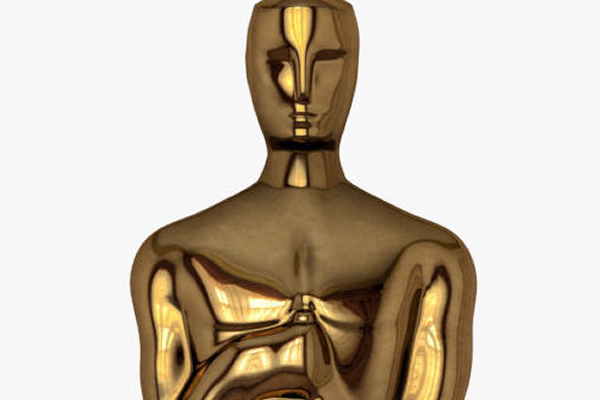a&e features
LGBT critics weigh in on rights and wrongs of this year’s Oscar noms
‘A Fantastic Woman,’ ‘Mudbound’ among recurring favorites
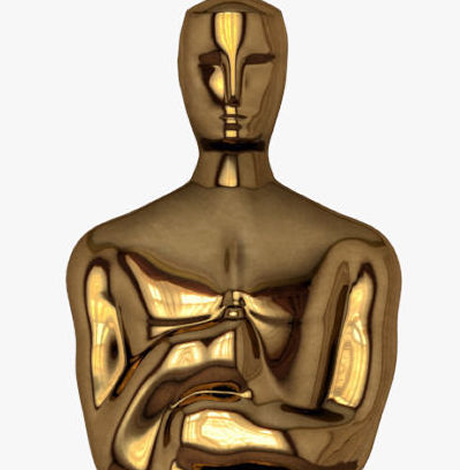
Thankfully, after 2017’s “Moonlight” Oscar victory fiasco, nominations for 90th annual Academy Awards (to be handed out Sunday evening) thankfully reflect more LGBT diversity than ever before. But while this pleases some critics, the choices fall short with others. Los Angeles Blade talked with film critics about their favorite films.
Jimmy Kimmel hosts the Academy Awards live from the Dolby Theatre in Los Angeles on Sunday, March 4. ABC will broadcast the ceremony.
Brian T. Carney, Washington Blade
From art house indies to the Academy Awards, 2017 was a great year for LGBT film. In a groundbreaking move, a mainstream movie that actually stars a transgender woman playing a transgender woman is nominated for an Oscar. The Chilean film “A Fantastic Woman,” is on the Oscar ballot for Best Foreign Language Film and star Daniela Vega will be onstage as a presenter.
Three of the nine movies nominated for Best Picture include gay characters (one’s a spoiler), and many members of the cast and crew of those movies have been nominated as well. One of the nominees for Best Documentary was directed by Yancy Ford, a trans man. For her outstanding work on “Mudbound,” Rachel Morrison, a black lesbian, is the first woman to be nominated for the Best Cinematography Oscar.
With “Negative Space” and “In A Heartbeat,” even the Short Features are becoming an LGBT showcase.
Unfortunately, there are some LGBT films and filmmakers who didn’t get the nominations they deserve. Dee Rees should have been nominated as Best Director and Michael Stuhlbarg should have been nominated for Best Supporting Actor. “BPM” and “God’s Own Country” did not make it through the nomination process for Best Foreign Film, and “Wonder Woman” did not get any Oscar love.
Sadly, the best queer movie of the year, Angela Robinson’s “Professor Marston and the Wonder Women” did not even get an Oscar campaign from Annapurna Pictures. Hopefully the brilliant Robinson will find a more supportive studio for her next film.
Nonetheless, there will certainly be a lot to celebrate Sunday. I’ll be cheering on the breathtaking and revolutionary “The Shape of Water.”
Daniel Montgomery, GoldDerby.com
This has been an encouraging year for LGBT movies. Twelve years after “Brokeback Mountain” was the subject of so much debate and controversy, and one year after “Moonlight” broke new ground by winning Best Picture at the Oscars, the presence of “Call Me by Your Name” in the awards conversation has seemed almost matter-of-fact.
And the fact that it wasn’t the only option for awards voters this year felt refreshingly ordinary. I thought the French film “BPM” and the British film “God’s Own Country” deserved a lot more awards attention — they’re both among my favorite films of 2017.
Beth McDonough, AfterEllen.com
My favorite 2017 film was “Battle of the Sexes,” which I think was hugely overlooked this year during awards season. I did love “Call Me By Your Name” though. “Thelma” and “My Days of Mercy” were really great films that didn’t get enough attention. “A Fantastic Woman” was incredible and will hopefully won the Foreign Film award.
Jeremy Blacklow, GLAAD
Two-thousand-seventeen has been a banner year for LGBT representation at the Academy Awards, albeit mostly still relegated to limited release or independent films. Following the huge breakthrough moment of “Moonlight” winning Best Picture at the Academy Awards, we’ve seen a record amount of diverse LGBT inclusion among this year’s nominees.
While a lot of the buzz has focused on “Call Me by Your Name” (and its nominations for Best Picture, for Timothée Chalamet for Lead Actor, for James Ivory for Adapted Screenplay and for Sufjan Stevens for Original Song “Mystery of Love”), when you look a bit deeper, you’ll see a tremendous amount of LGBT talent nominated for their work behind the camera.
Some of the most exciting nominations are for women, transgender people, and people of color, showing the beginning of a concerted effort by activists and advocates, the film industry, and the Academy to be recognize more diverse nominees. For “Mudbound,” Dee Rees is the first black woman ever nominated for Adapted Screenplay, and Rachel Morrison is the first woman ever nominated for Cinematography (they are both out lesbians).
Trish Bendix, Into
LGBT-themed films I would liked to have seen recognized this year: “Professor Marston & The Wonder Women,” for its progressive queer take on polyamory, kink and feminist themes from out director, Angela Robinson.
“Thelma,” the lesbian-themed horror film, was one of the most overlooked offering of the year, despite getting early Oscar buzz. I also liked the documentary, “Whitney: Can I Be Me?” an inside look at one of the most tragic stories of homo and biphobia as it related to one of the most talented pop stars of our time.
Frank J. Avella, GALECA
I don’t think there are necessarily more gay characters/movies than last year. It seems that way because a few big name films (“Call Me By My Name” in particular but also “BPM,” “God’s Own Country,” “A Fantastic Woman”) have been written about more than most LGBT fare most years. And “Call Me” has been especially controversial for many because of the non-nudity clause in both lead’s contracts which many LGBT media writers have mixed feelings about, myself included. I personally feel it compromised Ivory’s brilliant script.
“BPM” (Beats Per Minute) deserved to, at least have gotten a Foreign Language Film nomination. It’s a daring and startling depiction of LGBT life (something “Call Me” is not) and far better than any of the five nominees in that category. Also “God’s Own Country” which BAFTA recognized, deserved some love. This was my favorite because it never compromised in hopes of reaching a larger audience. It’s real and resonant.
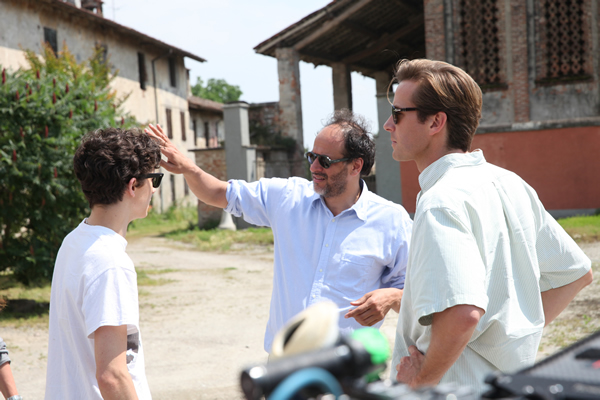
Timothee Chalamet, left, is up for an Oscar for his role in ‘Call Me By Your Name.’ He’s seen here with director Luca Guadagnino, center, and co-lead Armie Hammer. (Photo courtesy Sony Pictures Classics)
Matthew Todd, author “Straight Jacket”/former editor of U.K.’s Attitude
“Call Me By Your Name” is a love story and that always plays well with audiences and the great performances really ensure it’s a must-see film. That said, despite it winning the Dorian award, and huge support from the LGBT community, it has also created some controversy.
Some believe it doesn’t show the power of the gay identity that was emerging then, they believe it perpetuates the everlasting idea that gay people can’t have happy endings. It’s a reminder that LGBT audiences still don’t have a variety of stories to choose from from big studios. There is an audience for them who are keen for fresh stories and hopefully even more will be made.
Erik Anderson, AwardsWatch
Every year we will see more and more LGBT characters who are their own, fully realized people and not just the props they used to be. This is both because of the positive progression LGBT rights have taken as well as a response to the pushback over the last year from the current regressive administration. Art and the voices that supply it will always stand up and speak louder when told to sit down and keep quiet.
I wish “The Wound” had gotten a nod for Foreign Language Film. I was shocked and heartbroken that “In a Heartbeat” was snubbed in Animated Short. And I was really happy that “Strong Island” made it in Documentary Feature.
a&e features
Queer highlights of the 2026 Critics Choice Awards: Aunt Gladys, that ‘Heated Rivalry’ shoutout and more
Amy Madigan’s win in the supporting actress category puts her in serious contention to win the Oscar for ‘Weapons’
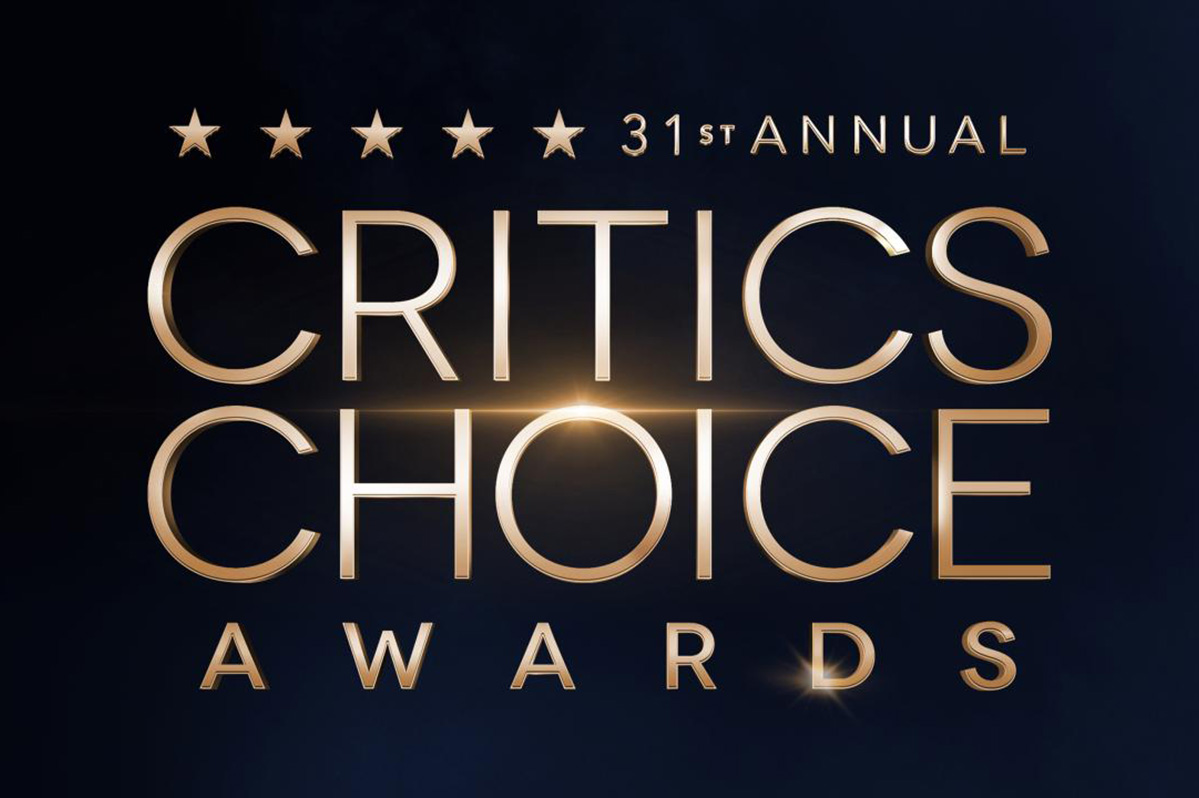
From Chelsea Handler shouting out Heated Rivalry in her opening monologue to Amy Madigan proving that horror performances can (and should) be taken seriously, the Critics Choice Awards provided plenty of iconic moments for queer movie fans to celebrate on the long road to Oscar night.
Handler kicked off the ceremony by recapping the biggest moments in pop culture last year, from Wicked: For Good to Sinners. She also made room to joke about the surprise hit TV sensation on everyone’s minds: “Shoutout to Heated Rivalry. Everyone loves it! Gay men love it, women love it, straight men who say they aren’t gay but work out at Equinox love it!”
The back-to-back wins for Jacob Elordi in Frankenstein and Amy Madigan in Weapons are notable, given the horror bias that awards voters typically have. Aunt Gladys instantly became a pop culture phenomenon within the LGBTQ+ community when Zach Cregger’s hit horror comedy released in August, but the thought that Madigan could be a serious awards contender for such a fun, out-there performance seemed improbable to most months ago. Now, considering the sheer amount of critics’ attention she’s received over the past month, there’s no denying she’s in the running for the Oscar.
“I really wasn’t expecting all of this because I thought people would like the movie, and I thought people would dig Gladys, but you love Gladys! I mean, it’s crazy,” Madigan said during her acceptance speech. “I get [sent] makeup tutorials and paintings. I even got one weird thing about how she’s a sex icon also, which I didn’t go too deep into that one.”
Over on the TV side, Rhea Seehorn won in the incredibly competitive best actress in a drama series category for her acclaimed performance as Carol in Pluribus, beating out the likes of Emmy winner Britt Lower for Severance, Carrie Coon for The White Lotus, and Bella Ramsey for The Last of Us. Pluribus, which was created by Breaking Bad’s showrunner Vince Gilligan, has been celebrated by audiences for its rich exploration of queer trauma and conversion therapy.
Jean Smart was Hack’s only win of the night, as Hannah Einbinder couldn’t repeat her Emmy victory in the supporting actress in a comedy series category against Janelle James, who nabbed a trophy for Abbott Elementary. Hacks lost the best comedy series award to The Studio, as it did at the Emmys in September. And in the limited series category, Erin Doherty repeated her Emmy success in supporting actress, joining in yet another Adolescence awards sweep.
As Oscar fans speculate on what these Critics Choice wins mean for future ceremonies, we have next week’s Golden Globes ceremony to look forward to on Jan. 11.
a&e features
Looking back at the 10 biggest A&E stories of 2025
‘Wicked,’ Lady Gaga’s new era, ‘Sexy’ Bailey and more
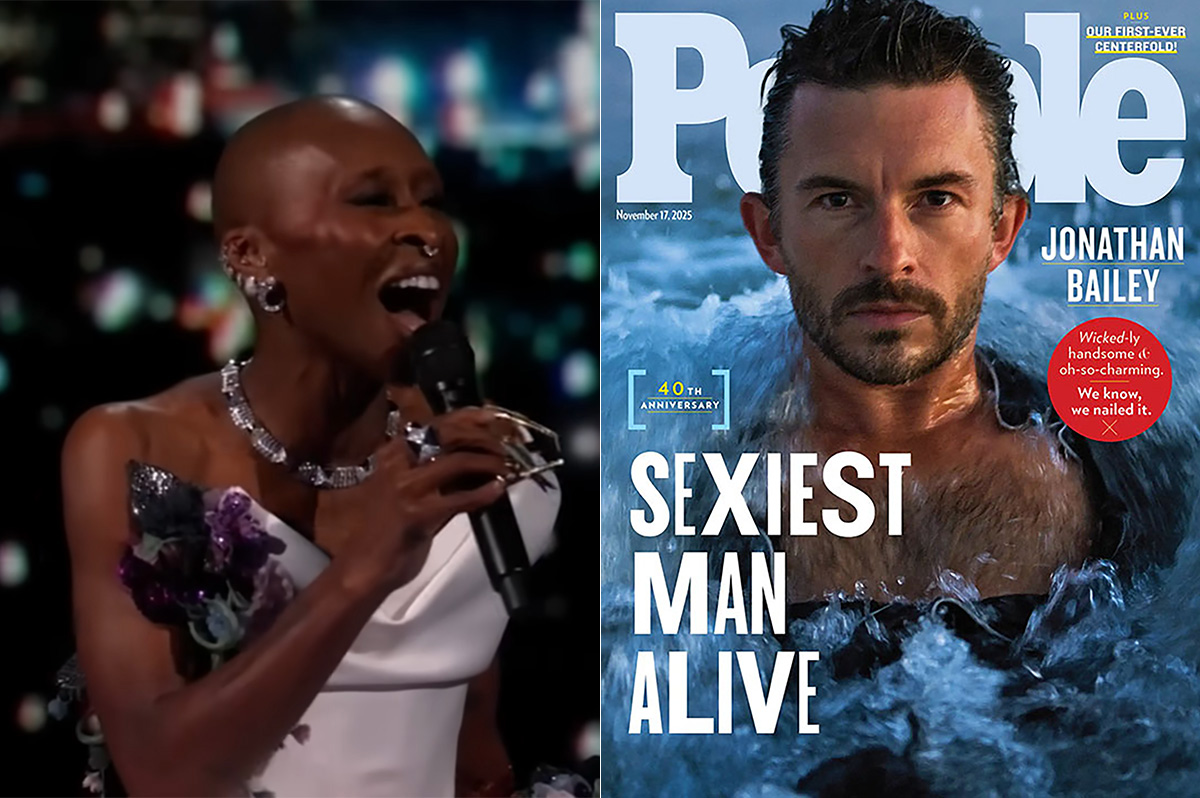
Although 2025 was a year marked by countless attacks on trans rights and political setbacks, the year also saw brilliant queer artists continuing to create art. From Cannes and Sundance Award winners now vying for Oscar consideration to pop icons entering new stages of their careers, queer people persevered to tell their stories through different media.
With the state of the world so uncertain, perhaps there’s no more vital time to celebrate our wins, as seen through some of this year’s top pop culture moments. While there’s no collection of 10 stories that fully encompass “the most important” news, here are some events that got the gays going:
10. ‘Mysterious Gaze of the Flamingo’ wins big at Cannes
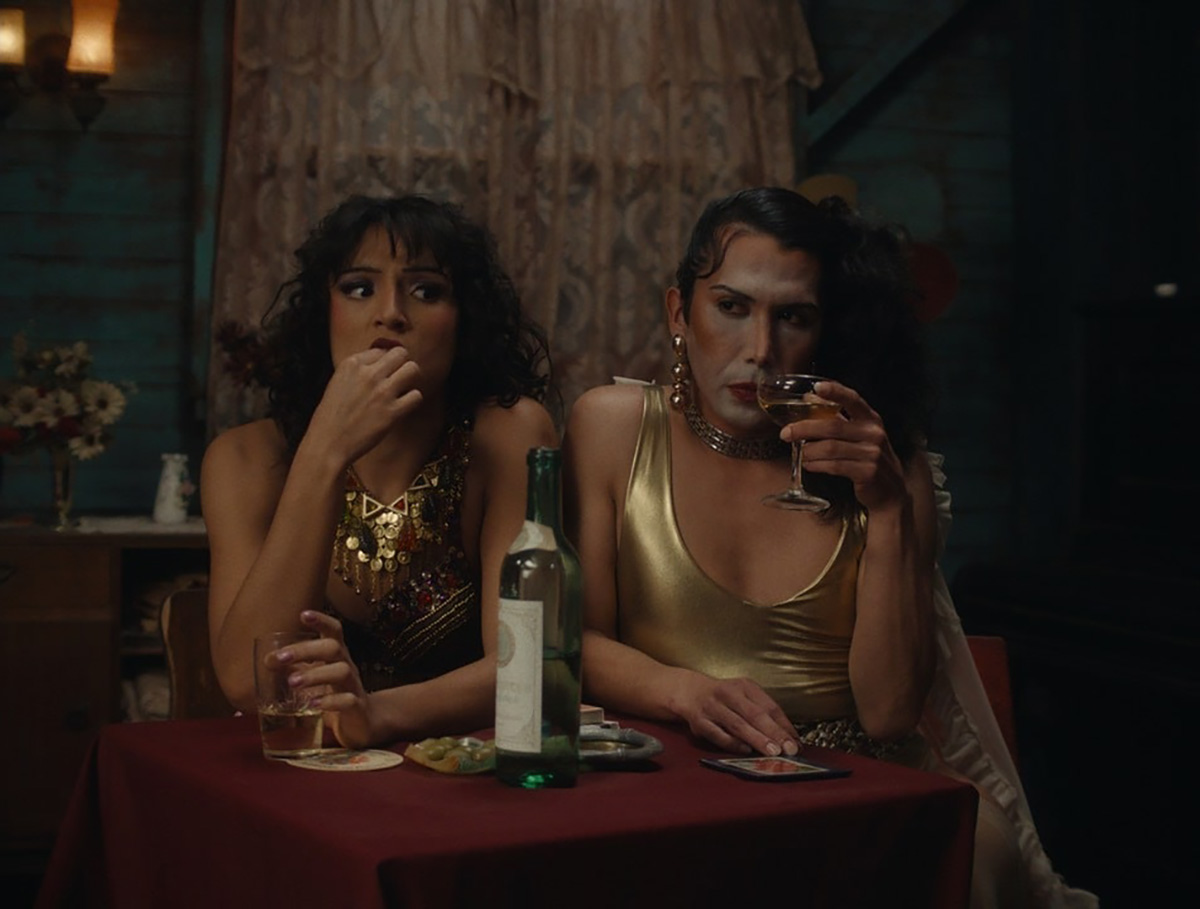
The Cannes Film Festival has become a crucial start for films hoping to make their way to the Oscars, and first-time director Diego Céspedes won the top Un Certain Regard prize for his intimate western “The Mysterious Gaze of the Flamingo.” The film is set in the ‘80s and is intended as an allegory for the AIDS epidemic. Seeing a film that unpacks vital queer history win one of the most coveted awards at Cannes has been a huge point of pride in the independent filmmaking community.
Since the film bowed at Cannes, it has been selected as Chile’s Oscar entry in the Best International Feature race. Speaking with The Blade during the film’s AFI Fest run in October, Céspedes said: At first, I was kind of scared to have this campaign position in the times that we’re living [in] here. But at the same time, I think the Oscars mean a huge platform — a huge platform for art and politics.”
9. ‘The Last of Us’ returns for an even gayer season 2
While the first season of The Last of Us gave us one of TV’s most heartbreaking queer love stories in the episode “Long, Long Time,” Season 2 doubled down on its commitment to queer storytelling with the blossoming relationship between Ellie (Bella Ramsey) and Dina (Isabela Merced). The show expanded on the pair’s relationship in the original video game, making it perhaps the central dynamic to the entire season. That unfortunately came with more homophobic backlash on the internet, but those who checked out all the episodes saw a tender relationship form amid the show’s post-apocalyptic, often violent backdrop. For their performance, Ramsey was once again nominated for an Emmy, but Merced deserved just as much awards attention.
8. ‘Emilia Pérez’ sparks controversy
Jacques Audiard’s genre-bending trans musical “Emilia Pérez” proved to be an awards season juggernaut this time last year, winning the Golden Globe for Best Musical/Comedy. But when the lead star Karla Sofia Gascón’s racist, sexist, and homophobic old tweets resurfaced, the film’s Oscar campaign became a tough sell, especially after Netflix had tried so hard to sell Emilia Pérez as the “progressive” film to vote for. Mind you, the film had already received significant backlash from LGBTQ+ audiences and the Mexican community for its stereotypical and reductive portrayals, but the Gascón controversy made what was originally just social media backlash impossible to ignore. The only person who seemed to come out of the whole debacle unscathed was Zoe Saldaña, who won the Oscar for Best Supporting Actress over Ariana Grande.
7. ‘Sorry, Baby’ establishes Eva Victor as major talent
Back in January at the Sundance Film Festival, Eva Victor (known by many for her brand of sketch comedy) premiered their directorial debut “Sorry, Baby” to rave reviews, even winning the Waldo Salt Screening Award. Victor shadowed Jane Schoenbrun on the set of “I Saw the TV Glow,” and seeing Victor come into their own and establish such a strong voice immediately made them one of independent cinema’s most exciting new voices. A memorable scene in the film sees the main character, Agnes (played by Victor), struggling to check a box for male or female, just one example of how naturally queerness is woven into the fabric of the story.
Most recently, Victor was nominated for a Golden Globe for her performance in the film, and she’s represented in a category alongside Jennifer Lawrence (“Die My Love”), Jessie Buckley (“Hamnet”), Julia Roberts (“After the Hunt”), Renate Reinsve (“Sentimental Value”) and Tessa Thompson (“Hedda”). The film also received four Independent Spirit Award nominations overall.
6. Paul Reubens comes out in posthumous doc
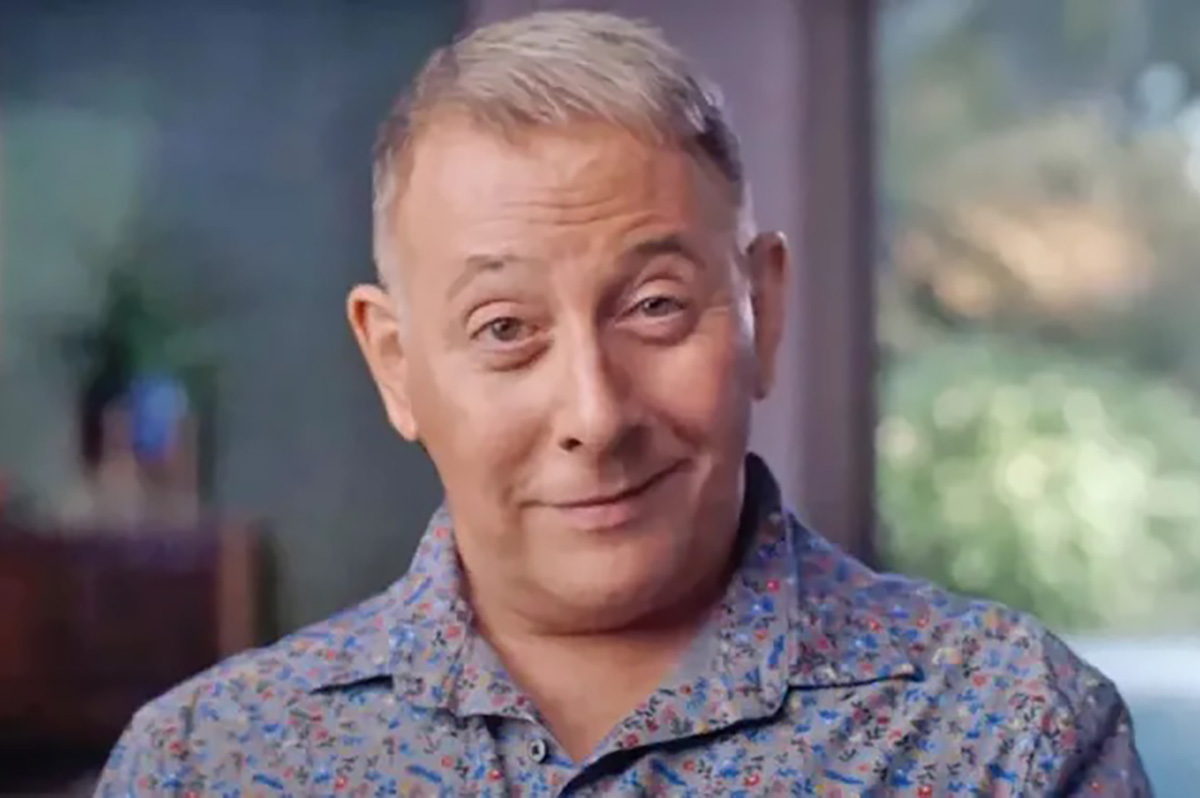
While Paul Reubens never publicly came out as gay before passing away in 2023, the two-part documentary “Pee-wee as Himself” premiered back in May on HBO Max, giving the legendary comedian a chance to posthumously open up to the world. Directed by Matt Wolf, the documentary explores how Reubens found his alter ego Pee-Wee Herman and why he kept his private life private.
The documentary won an Emmy in the Outstanding Documentary or Nonfiction Special category and remains one of the most critically acclaimed titles of the year with a 100% Rotten Tomatoes score. Also worth noting, the National Geographic documentary Sally told the posthumous coming out story of Sally Ride through the help of her long-time partner, Tam O’Shaughnessy.
5. Lady Gaga releases ‘Mayhem’
Lady Gaga entered a new phase of her musical career with the release of Mayhem, her seventh album to date. From the frenzy-inducing pop hit Abracadabra to the memorable Bruno Mars duet featured on “Die With a Smile,” seeing Gaga return to her roots and make an album for the most die-hard of fans was especially rewarding after the underwhelming film releases of “House of Gucci” and “Joker: Folie à Deux.” Gaga has been touring with The Mayhem Ball since July, her first arena tour since 2018. She even extended her tour into 2026 with more North American dates, so the party isn’t stopping anytime soon. And Gaga is even set to make an appearance next May in “The Devil Wears Prada 2.”
4. Cynthia Erivo, Ariana Grande perform at the Oscars
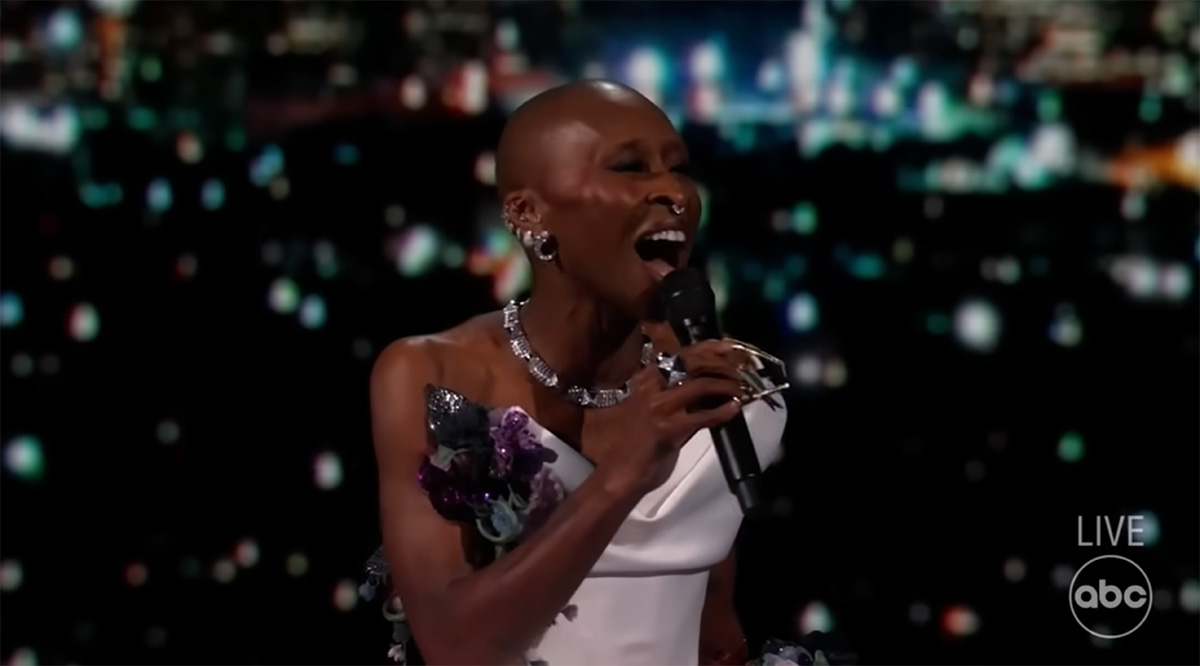
While “Wicked: For Good” didn’t quite reach the heights of the first film, we will forever have Cynthia Erivo and Ariana Grande’s breathtaking live performance that opened the 97th Academy Awards. The pair sang a rendition of “Over the Rainbow,” “Home,” and “Defying Gravity,” paying proper homage to the original 1939 “Wizard of Oz.” Even non-Wicked fans can’t deny how magical and brilliantly staged this performance was. With both Erivo and Grande up for acting Oscars last year, they’re hoping to repeat success and make history with consecutive nominations. Either way, let’s hope there’s another live performance in the making, especially with two new original songs (The Girl in the Bubble and No Place Like Home) in the mix.
3. Indya Moore speaks out against Ryan Murphy
Indya Moore has consistently used social media as a platform for activism, and in September, posted a 30-minute Instagram live speaking out against “Pose” co-creator Ryan Murphy. Moore claimed that Murphy wasn’t being a true activist for trans people. “Ryan Murphy, we need you to do more. You need to address the racism, the violence, and the targeting of people on your productions, Ryan Murphy. You do need to make sure trans people are paid equally. Yes, Janet did the right thing,” Moore said. Murphy was also back in the headlines this year for the critically panned “All’s Fair” and the controversial “Monster: The Ed Gein Story” starring Laurie Metcalf and Charlie Hunnam.
2. Cole Escola wins Tony for Best Leading Actor
Few pop culture moments this year brought us together more than Cole Escola winning a Tony award for “Oh, Mary!” the Broadway show they created, wrote and starred in (we love a triple threat!) Escola made history by becoming the first nonbinary person to win a Tony in the leading actor category, and seeing them excitedly rush to the stage wearing a Bernadette Peters-inspired gown instantly became a viral social media moment.
The cherry on top of Escola’s major moment is the recent news that they are writing a Miss Piggy movie with Jennifer Lawrence and Emma Stone producing — news that also broke the internet for the better. We cannot wait!
1. Jonathan Bailey makes gay history as ‘Sexiest Man Alive’
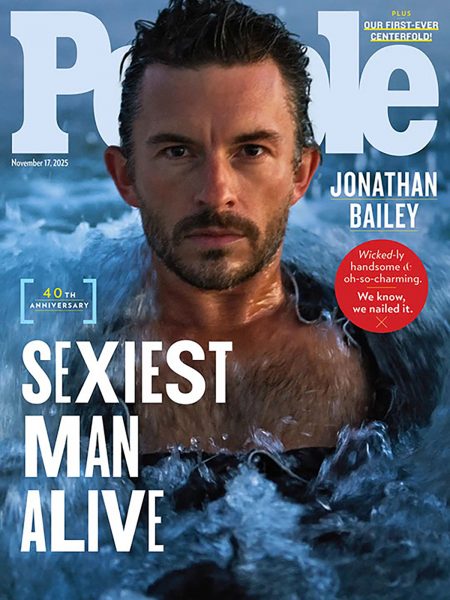
The same year as his on-screen roles in blockbusters “Jurassic World Rebirth” and “Wicked: For Good,” Jonathan Bailey made history as the first openly gay man to be named People magazine’s “Sexiest Man Alive.” The fact that it took 40 years for an openly gay man to earn the title is a signifier of how far we still have to go with queer representation, and seeing Bailey celebrated is just one small step in the right direction.
“There’s so many people that want to do brilliant stuff who feel like they can’t,” he told PEOPLE, “and I know the LGBT sector is under immense threat at the moment. So it’s been amazing to meet people who have the expertise and see potential that I could have only dreamed of.” In 2024, Bailey founded the charity titled The Shameless Fund, which raises money for LGBTQ+ organizations.
a&e features
Your guide to D.C.’s queer New Year’s Eve parties
Ring in 2026 with drag, leather, Champagne, and more
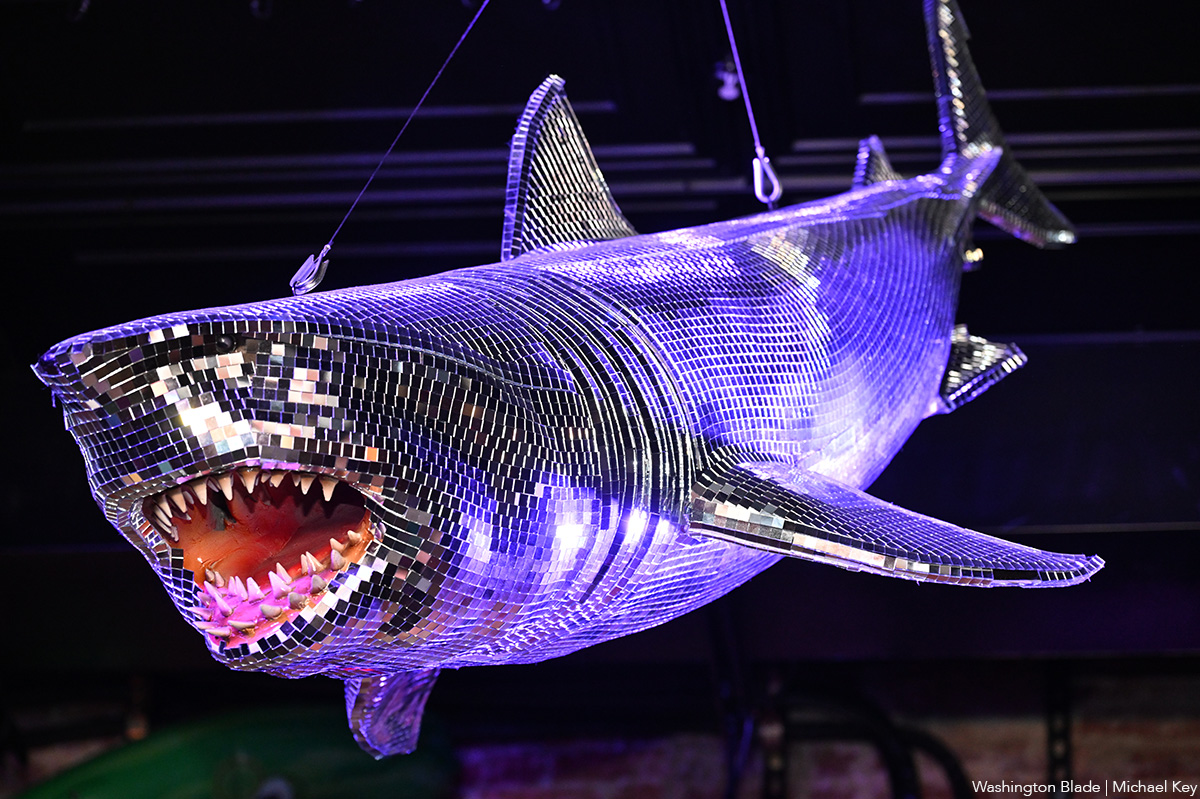
With Christmas in the rear view mirror, we can turn our attention to ringing in a much-anticipated New Year with a slew of local LGBTQ parties. Here’s what’s on tap.
Pitchers
This spacious Adams Morgan bar is hosting the “Pitchers’ Perfect New Year’s Eve.” There will be a midnight Champagne toast, the ball drop on the big screens, and no cover, all night long. The bar doesn’t close until 4 a.m., and the kitchen will be open late (though not until close). All five floors will be open for the party, and party favors are promised.
Trade
D.C.’s hottest bar/club combo is leaning into the Shark motif with its NYE party, “Feeding Frenzy.” The party is a “glitterati-infused Naughty-cal New Year’s Even in the Shark Tank, where the boats are churning and the sharks are circling.” Trade also boasts no cover charge, with doors opening at 5 p.m. and the aforementioned Shark Tank opening at 9 p.m.. Four DJs will be spread across the two spaces; midnight hostess is played by Vagenesis and the two sea sirens sensuously calling are Anathema and Justin Williams.
Number Nine
While Trade will have two DJs as part of one party, Number Nine will host two separate parties, one on each floor. The first floor is classic Number Nine, a more casual-style event with the countdown on TVs and a Champagne midnight toast. There will be no cover and doors open at 5 p.m. Upstairs will be hosted by Capital Sapphics for its second annual NYE gathering. Tickets (about $50) include a midnight Champagne toast, curated drink menu, sapphic DJ set by Rijak, and tarot readings by Yooji.
Crush
Crush will kick off NYE with a free drag bingo at 8 p.m. for the early birds. Post-bingo, there will be a cover for the rest of the evening, featuring two DJs. The cover ($20 limited pre-sale that includes line skip until 11 p.m.; $25 at the door after 9 p.m.) includes one free N/A or Crush, a Champagne toast, and party favors (“the legal kind”). More details on Eventbrite.
Bunker
This subterranean lair is hosting a NYE party entitled “Frosted & Fur: Aspen After Dark New Year’s Eve Celebration.” Arriety from Rupaul Season 15 is set to host, with International DJ Alex Lo. Doors open at 9 p.m. and close at 3 p.m.; there is a midnight Champagne toast. Cover is $25, plus an optional $99 all-you-can-drink package.
District Eagle
This leather-focused bar is hosting “Bulge” for its NYE party. Each District Eagle floor will have its own music and vibe. Doors run from 7 p.m.-3 a.m. and cover is $15. There will be a Champagne toast at midnight, as well as drink specials during the event.
Kiki, Shakiki
Kiki and its new sister bar program Shakiki (in the old Shakers space) will have the same type of party on New Year’s Eve. Both bars open their doors at 5 p.m. and stay open until closing time. Both will offer a Champagne toast at midnight. At Kiki, DJ Vodkatrina will play; at Shakiki, it’ll be DJ Alex Love. Kiki keeps the party going on New Year’s Day, opening at 2 p.m., to celebrate Kiki’s fourth anniversary. There will be a drag show at 6 p.m. and an early 2000s dance party 4-8 p.m.
Spark
This bar and its new menu of alcoholic and twin N/A drinks will host a NYE party with music by DJ Emerald Fox. Given this menu, there will be a complimentary toast at midnight, guests can choose either sparkling wine with or without alcohol. No cover, but Spark is also offering optional wristbands at the door for $35 open bar 11 p.m.-1 a.m. (mid-shelf liquor & all NA drinks).
-

 Sponsored5 days ago
Sponsored5 days agoSafer Ways to Pay for Online Performances and Queer Events
-

 District of Columbia4 days ago
District of Columbia4 days agoTwo pioneering gay journalists to speak at Thursday event
-

 Colombia3 days ago
Colombia3 days agoBlade travels to Colombia after U.S. forces seize Maduro in Venezuela
-

 a&e features4 days ago
a&e features4 days agoQueer highlights of the 2026 Critics Choice Awards: Aunt Gladys, that ‘Heated Rivalry’ shoutout and more

